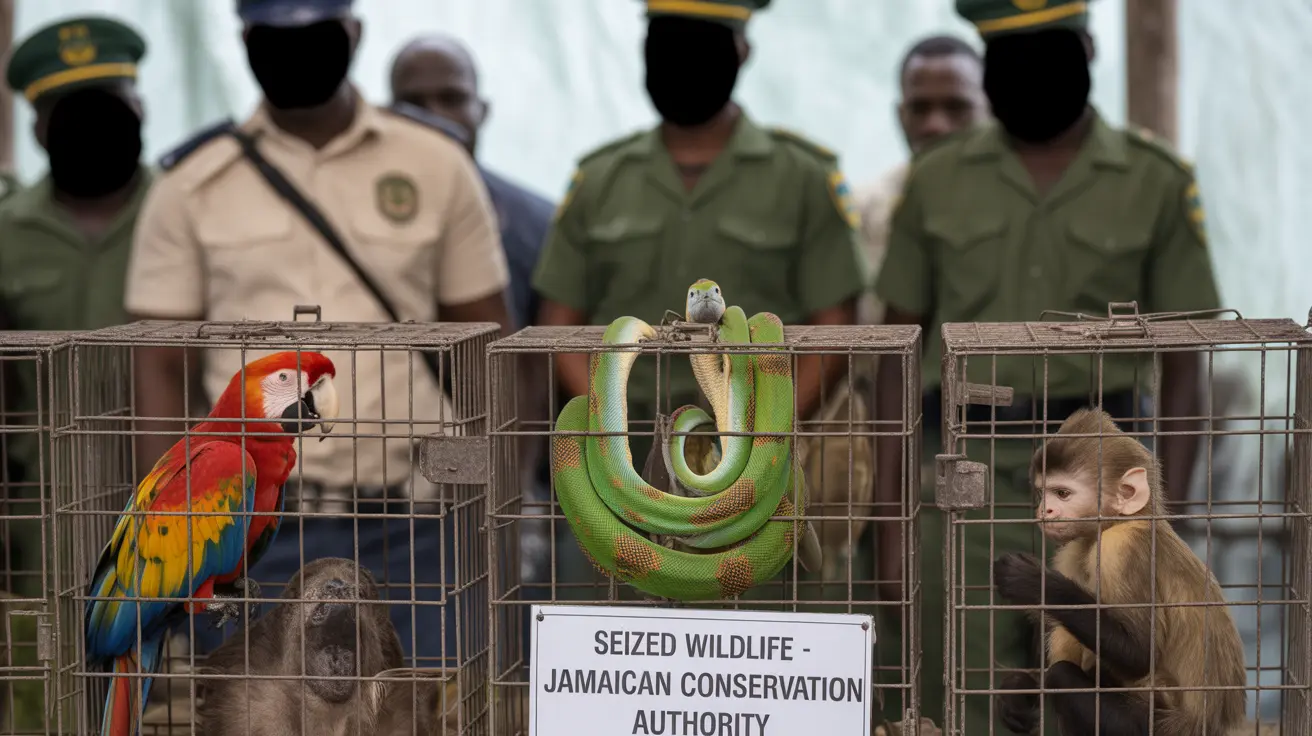Jamaican wildlife enforcement officials have seized over 250 endangered and exotic species during the past five years, highlighting an alarming increase in illegal wildlife trade activities across the island nation. The confiscation of 274 animals underscores growing challenges in combating wildlife trafficking in the Caribbean region.
This surge in exotic animal seizures points to a concerning trend where local individuals are increasingly participating in the global illegal wildlife trade, a criminal enterprise worth billions of dollars annually. The situation raises serious concerns about both animal welfare and potential risks to Jamaica's delicate ecosystem.
Wildlife Trafficking Health Risks
The illegal trade of exotic animals poses significant health hazards to both human populations and native wildlife. When animals are trafficked, they bypass crucial quarantine procedures and health screenings, potentially introducing diseases that could affect both people and local animal populations.
NEPA Wildlife Enforcement Efforts
Jamaica's National Environment and Planning Agency (NEPA) has been at the forefront of addressing these wildlife trafficking challenges. The confiscation of 274 endangered and exotic species demonstrates their active role in enforcing wildlife protection laws and regulations.
Jamaican Exotic Pets Laws
Current Jamaican legislation strictly regulates the importation and possession of exotic animals. These regulations aim to protect both native biodiversity and ensure the welfare of imported animals. The recent seizures indicate a need for stronger enforcement and public awareness of these laws.
Wildlife Crime Prosecution
Law enforcement faces significant challenges in prosecuting wildlife trafficking cases. The complex nature of these crimes, often involving international networks, requires coordinated efforts between multiple agencies and jurisdictions.
Social Media Wildlife Trade Concerns
The rise of social media platforms has created new channels for illegal wildlife traders to connect with potential buyers. Authorities are increasingly monitoring these digital spaces to identify and interrupt illegal trading activities.
Jamaican Biodiversity Threats
The introduction of exotic species through illegal wildlife trade poses serious risks to Jamaica's native flora and fauna. These animals can become invasive species, disrupting local ecosystems and threatening indigenous wildlife populations.
Frequently Asked Questions
What should I do if I encounter illegal wildlife trading activities?
Report any suspicious wildlife trading activities to NEPA or local law enforcement authorities immediately. Do not attempt to purchase or rescue the animals yourself, as this can enable further trafficking.
Are there legal ways to own exotic pets in Jamaica?
Yes, but it requires proper permits and documentation through authorized channels. Always verify that any pet purchase follows legal importation and ownership requirements.
What are the risks of buying exotic animals through unofficial channels?
Purchasing animals through unauthorized sources can expose you to legal consequences, health risks from unscreened animals, and contribute to the decline of endangered species populations.
Protecting Jamaica's Wildlife Heritage
The ongoing battle against illegal wildlife trade requires continued vigilance and cooperation between authorities, conservation organizations, and the public. By understanding and following proper channels for pet ownership while reporting illegal activities, citizens can help protect both native biodiversity and ensure the welfare of exotic animals.
Education and awareness remain crucial tools in combating wildlife trafficking. Pet enthusiasts are encouraged to research thoroughly and work only with licensed, legitimate sellers when considering exotic pet ownership.






